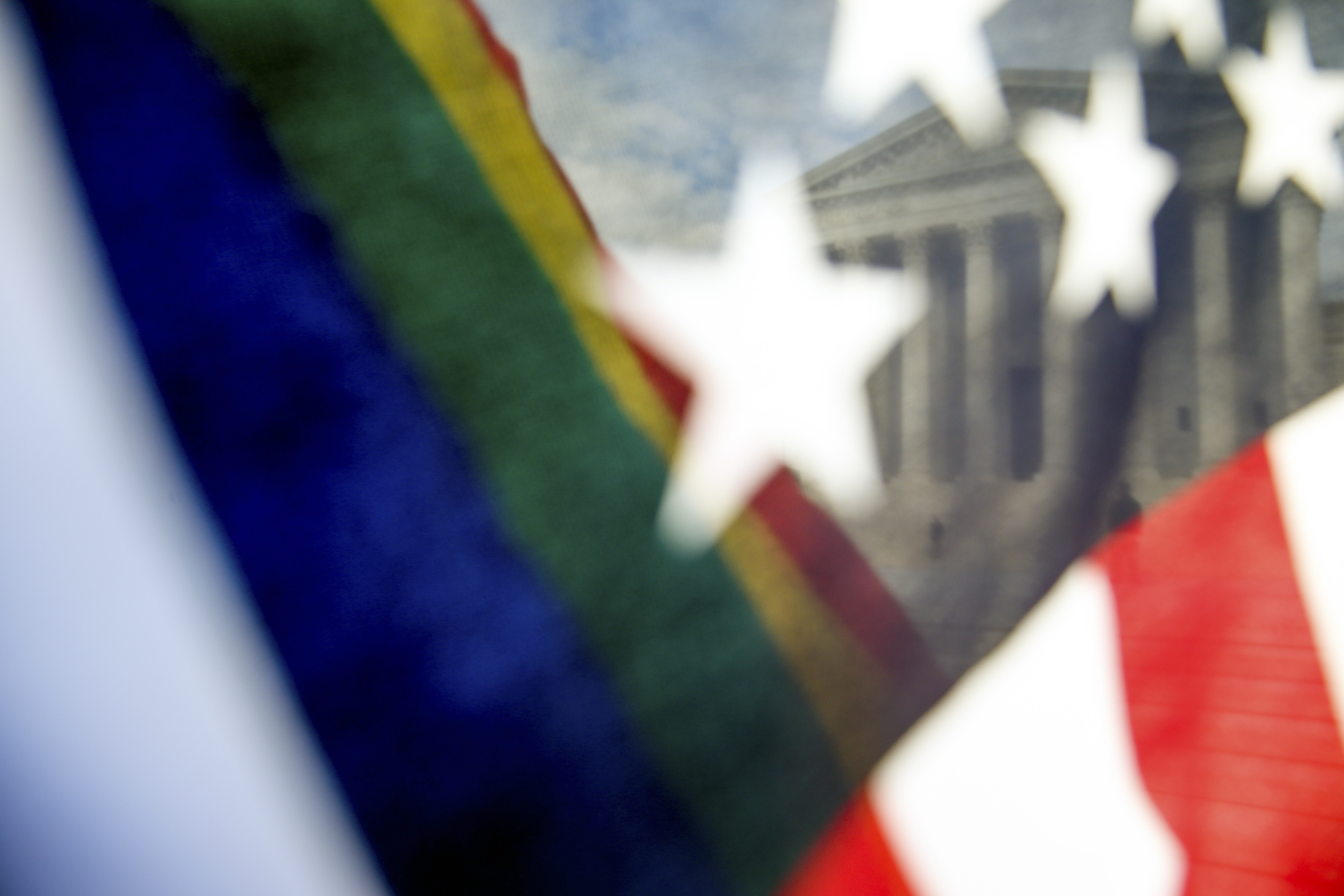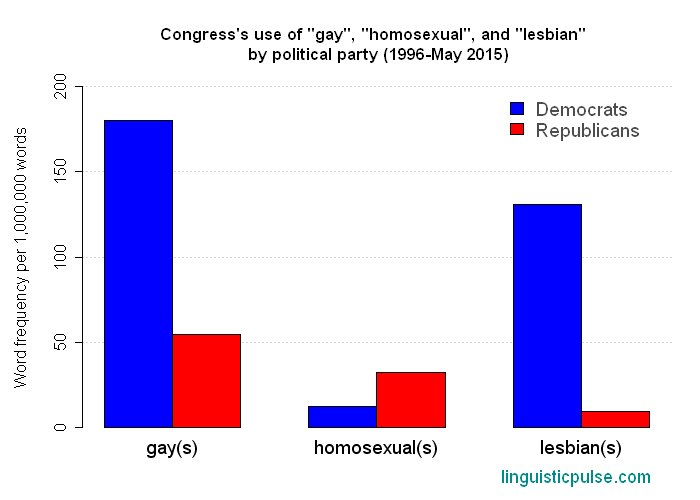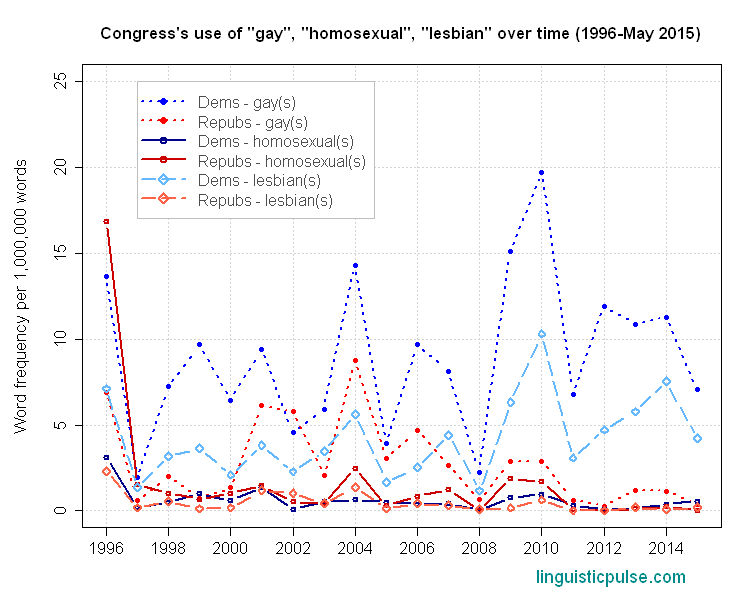Why the word 'homosexual' is offensive
It comes down to who says it most

A free daily email with the biggest news stories of the day – and the best features from TheWeek.com
You are now subscribed
Your newsletter sign-up was successful
If you're a member of a stigmatized group, such as a person of color or a gay man or woman, even the smallest of talk can be fraught with small discomforts, slights, and aggressions.
Such casual offenses need not be intentional. Indeed, they often aren't.
For example, consider the word "homosexual," which Jeremy Peters writes "probably sounds inoffensive" to most people. I am a straight man who considers myself to be politically aligned with the struggles of gay men and women, and I frequently use the term (including just last night). I was surprised then to learn that the Gay and Lesbian Alliance Against Defamation (GLAAD) listed it as an offensive term back in 2006.
The Week
Escape your echo chamber. Get the facts behind the news, plus analysis from multiple perspectives.

Sign up for The Week's Free Newsletters
From our morning news briefing to a weekly Good News Newsletter, get the best of The Week delivered directly to your inbox.
From our morning news briefing to a weekly Good News Newsletter, get the best of The Week delivered directly to your inbox.
I thought it was strange that I was so oblivious, so I began researching. I emerged with a couple of explanations about the term's offensiveness.
First, people often point to parts of the word itself to explain its offensiveness. They point out that, since it includes "sexual," the word focuses on sexual acts and not on gay men and women's basic humanity or that the word is related to a recognizable slur, "homo."
Second, some have also looked at the word's history and pointed out that "homosexual" has a history of being used to pathologize gays and lesbians. For example, the American Psychological Association considered homosexuality a psychological disorder until 1973.
These explanations are compelling, but I'm not sure they tell the whole story. For example, if the inclusion of "sexual" is the problem with "homosexual," why do I not feel equally uncomfortable with "heterosexual"?
A free daily email with the biggest news stories of the day – and the best features from TheWeek.com
Also, if similarity to a slur is such a problem, then why is the preferred term "gay"? After all, "gay" is often used cruelly, like when it's used to mean lame or stupid. Finally, as a linguist, I know that historical usage, while usually very interesting, often has very little relevance to how words are used and understood contemporaneously.
This led me to take a look at the use of "homosexual" by politicians, specifically members of the U.S. Congress, through data made available on CapitolWords.org by the Sunlight Foundation. It proved illuminating.
I was specifically interested in how different labels for gay men and women are used by Congressional Democrats and the Republicans, who have historically taken different stances on issues of deep concern to many gay men and women such as employment discrimination. The data I collected shows interesting tendencies in the use of "gay," "homosexual," and "lesbian" by political party.

For Democrats, "gay" and "lesbian" are both preferred over "homosexual." Republicans also prefer "gay" over "homosexual" but rarely use "lesbian." However, Republicans' preference for "gay" is far weaker, and they use the word "homosexual" more than Democrats do. In addition, Republicans have not always avoided the word "homosexual," as the graph below makes clear.

In this data, 1996 is the peak year for use of the word "homosexual." (It was also the first year digitized data is available, so we don't know if usage in 1995, much less 1955, was even higher.)
Republicans used the term quite frequently in 1996 as Congress passed the Defense of Marriage Act (DOMA), which excluded same sex unions from the federal government's definition of marriage, and the Senate debated, but did not pass, the Employment Nondiscrimation Act of 1996 (ENDA), which would have given legal protections to gays and lesbians in the workplace.
The divide between Democrats and Republicans was somewhat murky in 1996, both in terms of word usage and support for causes important to gays and lesbians. In fact, a majority of both Republicans and Democrats voted in favor of DOMA. However, it was mostly the Republicans in the Senate who opposed ENDA, and this opposition was accompanied by frequent use of the word "homosexual," such as when Sen. Orrin Hatch (R-Utah) asked rhetorically, "Should the Senate run roughshod over the concerns of parents and educators about having homosexuals teach their kids?"
An even stronger divide emerged several years later when the House voted on an extension of DOMA, the Marriage Protection Act of 2004 (which died in the Senate). The vast majority of Republicans supported the bill, and the vast majority of Democrats opposed it, although in this year Republicans' use of "homosexual" was far more limited.
In its history of use in Congress, the word "homosexual" has largely been associated with some of the most clearly anti-gay politicians like Steve King (R-Iowa) and Louie Gohmert (R-Texas). Interestingly, the term has also been frequently used by former Democratic congressman Barney Frank, who is himself gay, although Frank is also a frequent user of "gay."
In the end, "homosexual" has largely faded out of use in Congress in the past few years, but so it seems has Republican discussion of gay men and women.
The offense that some gay men and women take to the term "homosexual" can be explained in part by its association with anti-gay stances heard especially in the 1990s and 2000s, not only in Congress but also on talk radio, at church, and around the dinner table. The subtle but close association between anti-gay politics and the term "homosexual" means that when they hear "homosexual" some gays and lesbians hear opposition to their struggle for equal treatment under the law and homophobic conspiracy theories about immoral and corrupt "homosexual agendas." It's no wonder they're offended.
-
 Companies are increasingly AI washing
Companies are increasingly AI washingThe explainer Imaginary technology is taking jobs
-
 The 9 best steroid-free players who should be in the Baseball Hall of Fame
The 9 best steroid-free players who should be in the Baseball Hall of Famein depth These athletes’ exploits were both real and spectacular
-
 ‘Bad Bunny’s music feels inclusive and exclusive at the same time’
‘Bad Bunny’s music feels inclusive and exclusive at the same time’Instant Opinion Opinion, comment and editorials of the day
-
 The billionaires’ wealth tax: a catastrophe for California?
The billionaires’ wealth tax: a catastrophe for California?Talking Point Peter Thiel and Larry Page preparing to change state residency
-
 Bari Weiss’ ‘60 Minutes’ scandal is about more than one report
Bari Weiss’ ‘60 Minutes’ scandal is about more than one reportIN THE SPOTLIGHT By blocking an approved segment on a controversial prison holding US deportees in El Salvador, the editor-in-chief of CBS News has become the main story
-
 Has Zohran Mamdani shown the Democrats how to win again?
Has Zohran Mamdani shown the Democrats how to win again?Today’s Big Question New York City mayoral election touted as victory for left-wing populists but moderate centrist wins elsewhere present more complex path for Democratic Party
-
 Millions turn out for anti-Trump ‘No Kings’ rallies
Millions turn out for anti-Trump ‘No Kings’ ralliesSpeed Read An estimated 7 million people participated, 2 million more than at the first ‘No Kings’ protest in June
-
 Ghislaine Maxwell: angling for a Trump pardon
Ghislaine Maxwell: angling for a Trump pardonTalking Point Convicted sex trafficker's testimony could shed new light on president's links to Jeffrey Epstein
-
 The last words and final moments of 40 presidents
The last words and final moments of 40 presidentsThe Explainer Some are eloquent quotes worthy of the holders of the highest office in the nation, and others... aren't
-
 The JFK files: the truth at last?
The JFK files: the truth at last?In The Spotlight More than 64,000 previously classified documents relating the 1963 assassination of John F. Kennedy have been released by the Trump administration
-
 'Seriously, not literally': how should the world take Donald Trump?
'Seriously, not literally': how should the world take Donald Trump?Today's big question White House rhetoric and reality look likely to become increasingly blurred